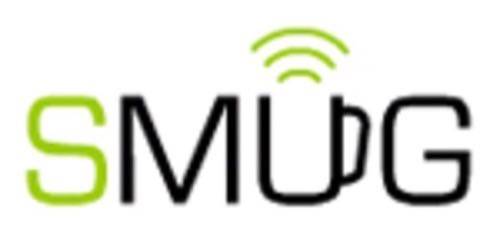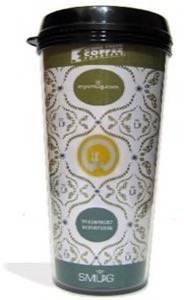Despite the deeply intrenched techie community within coffee shops around the globe, the process of buying coffee has yet to see significant innovation. Sure, there are some new ways to order coffee, even via text message, but a unique and elegant purchasing solution has evaded coffee shops and other frequented business – that is, perhaps, until now.

A company called Smug Coffee has created what it says is the world’s first smart mug, or “smug.” Instead of opting for wasteful plastic cups, coffee drinkers can instead buy a special mug with embedded radio frequency identification (RFID) chips that store account information and purchase habits.
Customers simply present their mug to a special scanner at check-out, and the barista can see their recent coffee orders – making a personalized ordering experience much easier. No need to grab a wallet or fork over cash – the chips connect to the customer’s coffee shop account and automatically deduct funds.

RFID and similar technologies have long been used to provide customers with new ways to interface with a point-of-sale. I have used a special key fob to charge gas purchases to my credit card since I was in high-school, and other solutions let customers wave their cards at a special scanner. What the technology has been waiting for is practical and elegant implementations, and Smug accomplishes that.
The Smug not only speeds up ordering and paying, but it helps save Mother Earth one plastic cup at a time. By using the mugs, customers are offered discounts and deals and can earn points toward free drinks. Encouraging the reuse of mugs puts a dent in the use of plastic cups that end up in a landfill. While the use of RFID is limited to the store where the mug is purchased, having the mug may also cause frequent coffee drinkers to think twice about using a plastic cup when at other coffee shops.
Eventually, solutions like the Smug will be commonplace and we will hardly realize the technology behind the purchases we make. Simply resting the mug near the check-out will tell the cashier our purchasing habits so we can order up “the usual” and pay for it without even thinking about it.
The brainchild of Marquette University student Chris Hallberg, Smug Coffee is currently supported by a handful of small coffee shop chains, and processed its first transaction in May of this year. What are some other great examples of RFID in the consumer space? Let us know in the comments below!

















